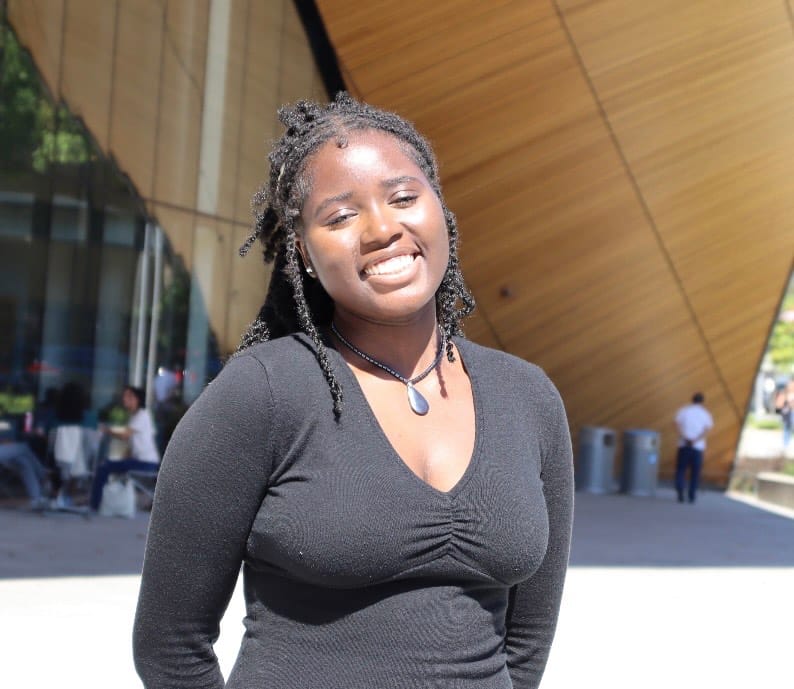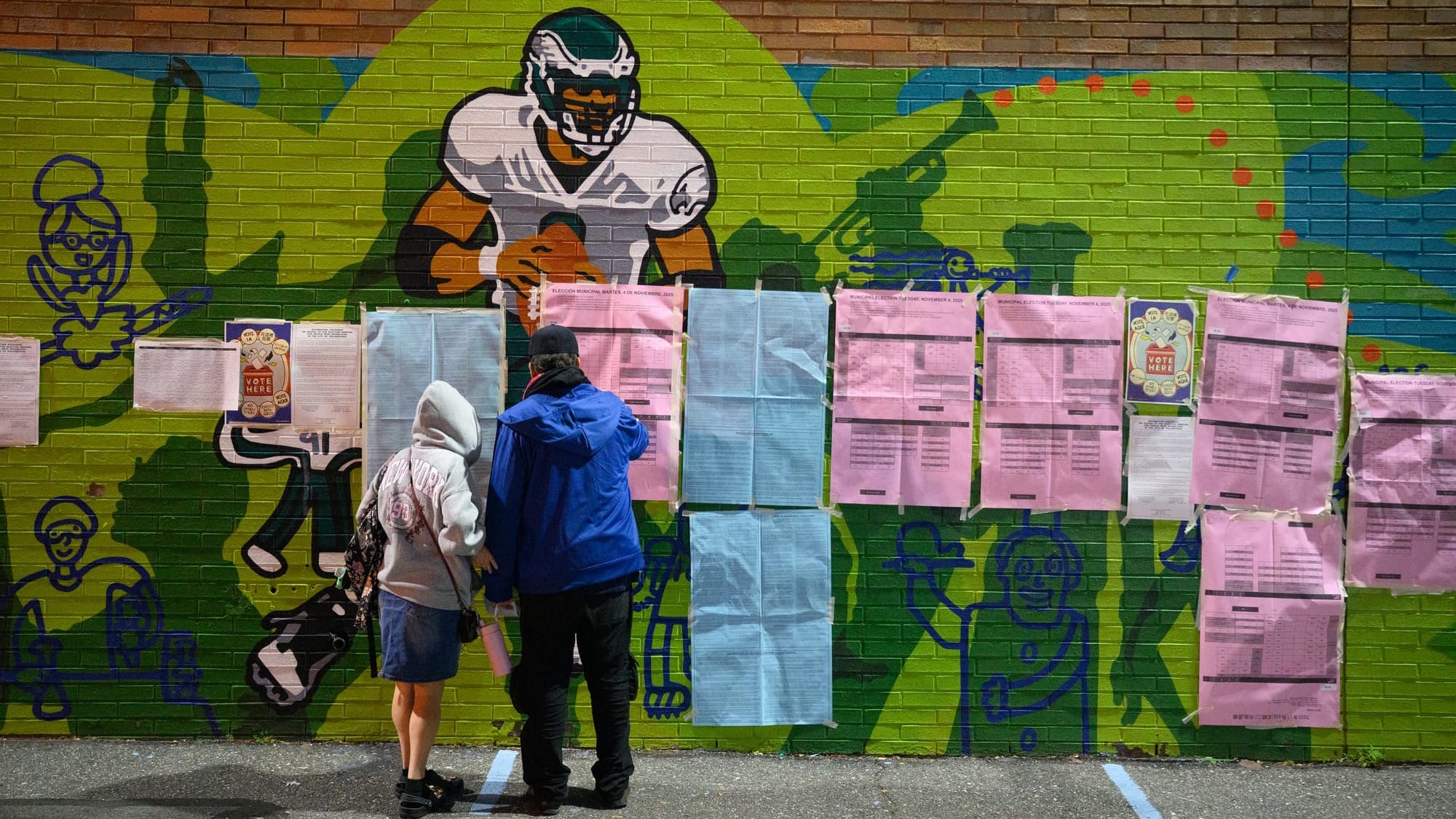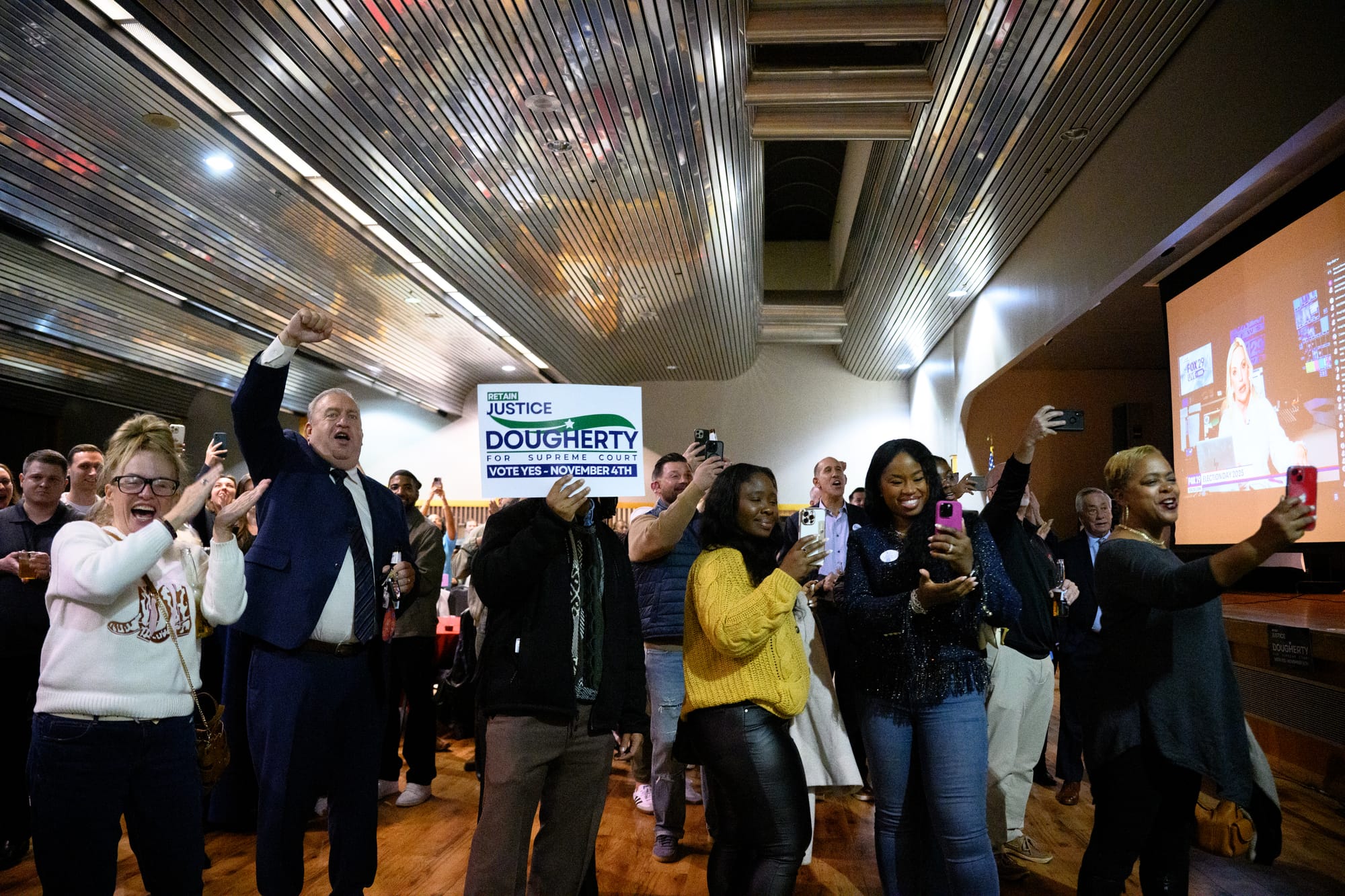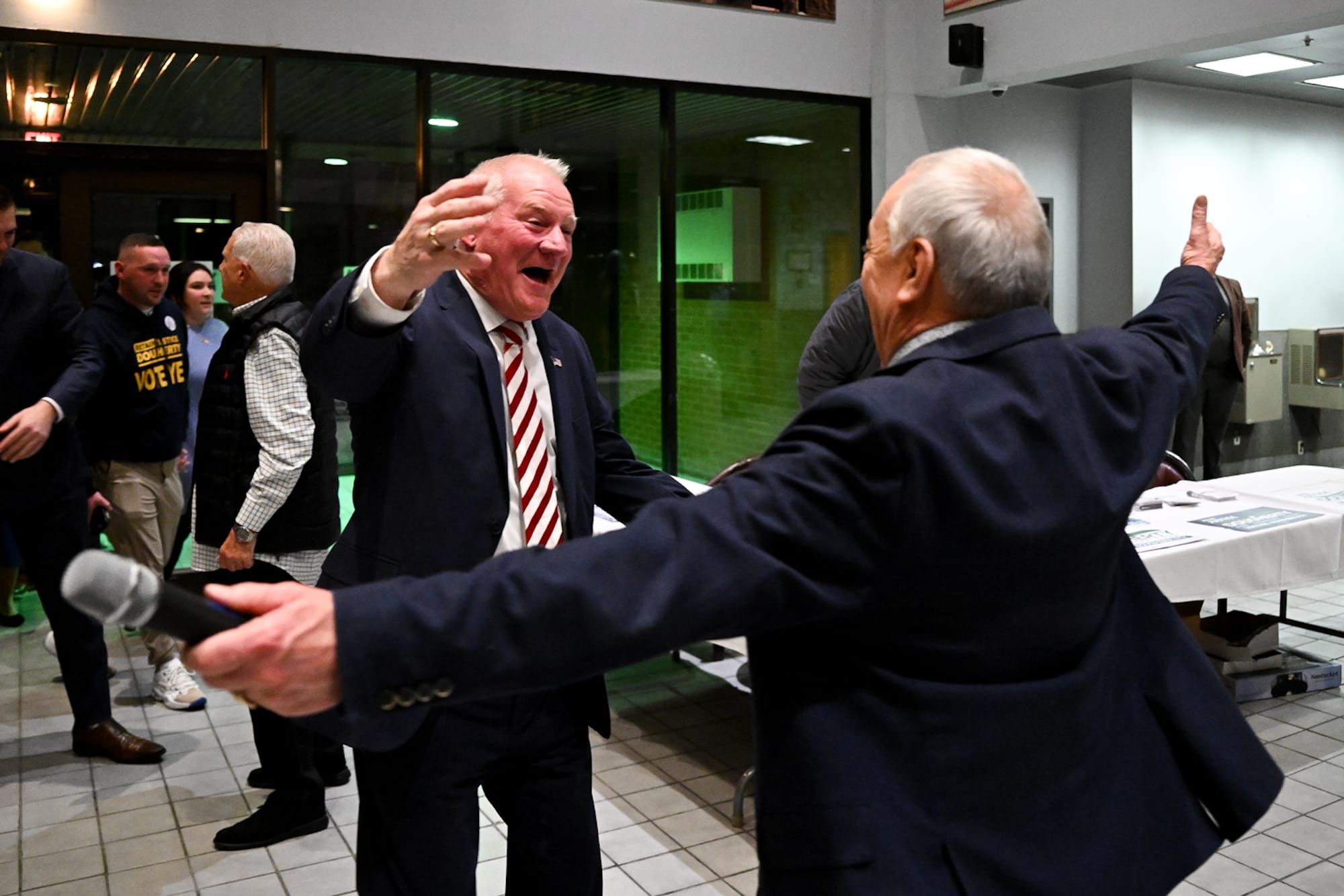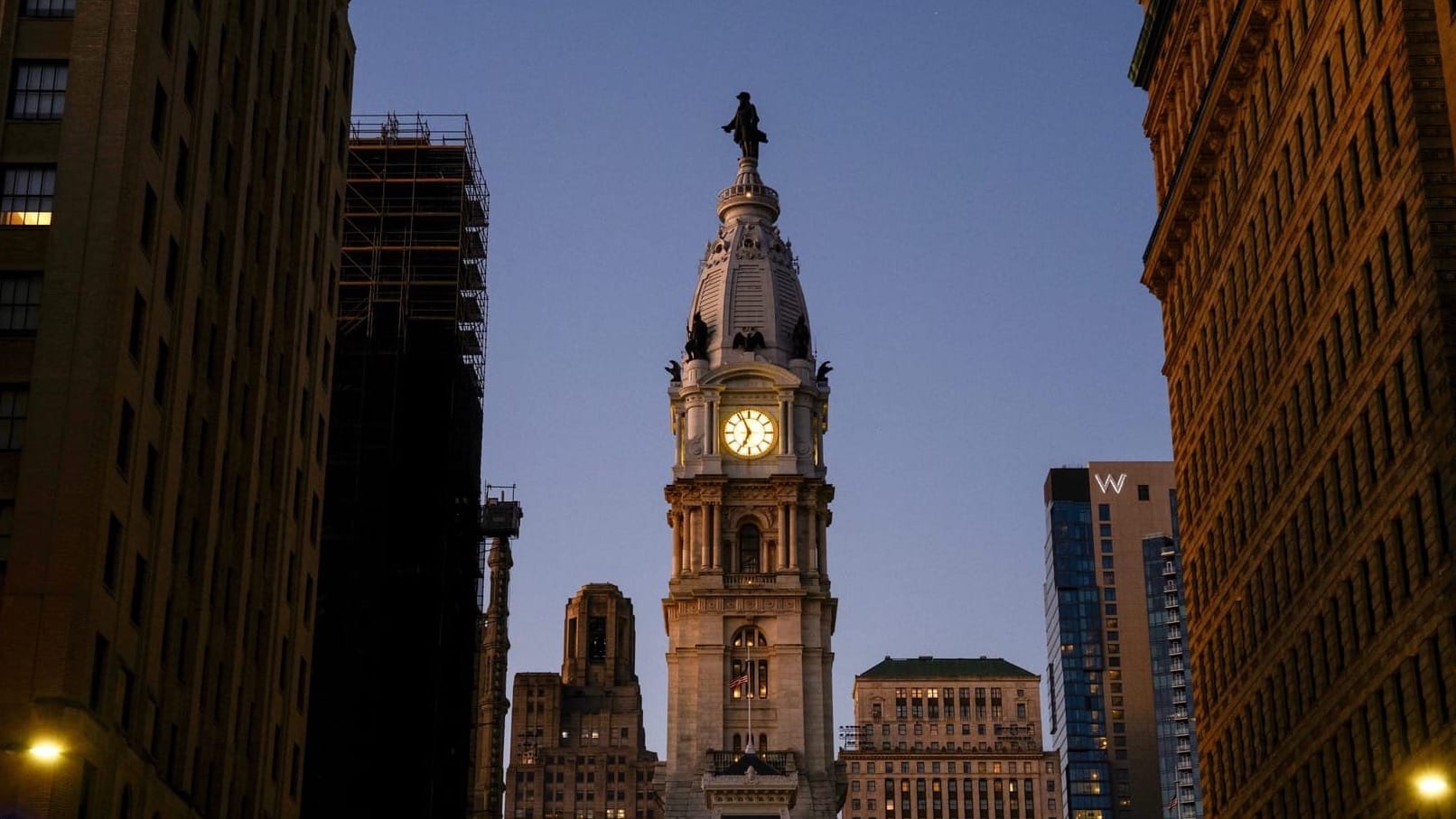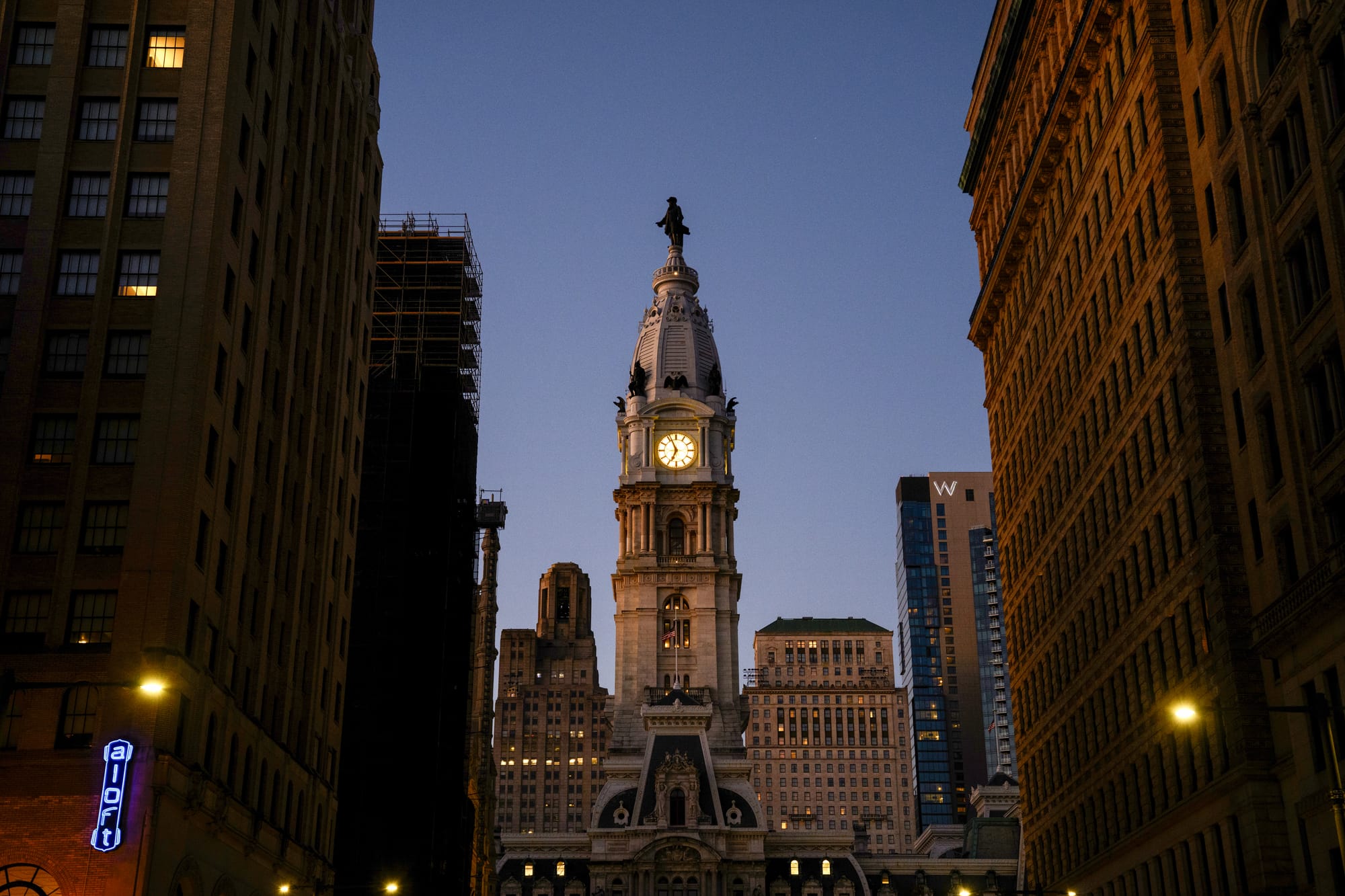Another four years: Krasner wins re-election
Turnout increased during Tuesday's election, bucking recent trends.
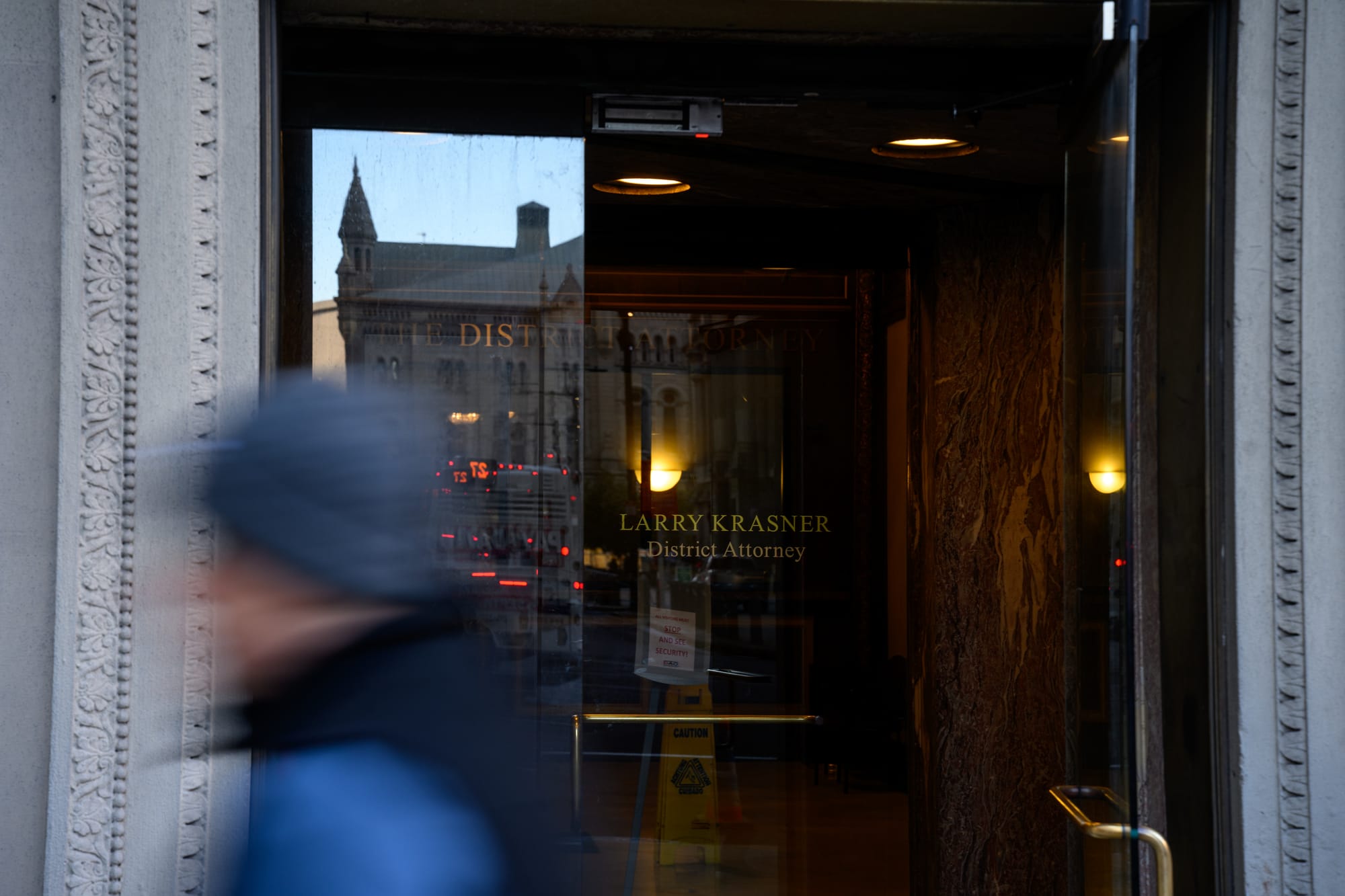
Larry Krasner easily won Tuesday's District Attorney race. He will serve a third term as one of the nation’s most progressive DAs.
Krasner won in a landslide, claiming 75% of the vote. He won all but 10 wards— the majority of the wards that his Republican opponent Pat Dugan won were in the Northeast.
“If you look across the country many progressive district attorneys have lost re-election or been recalled. And probably many more progressive candidates ran for office but lost,” explained Dr. Michael Sances, a Temple political science professor, in an email to the Philly Download, “Krasner is an increasingly rare success story for the progressive movement.”
Krasner ran on the promises to end mass incarceration, stand up for people’s rights and liberties, and resist the Trump administration. His approach has been one where he’s emphasized a focus on crimes like homicide, sexual assault and human trafficking, rather than minor offenses. Since he’s been in office, gun violence in Philadelphia decreased significantly.
“Krasner has certainly reframed how people think about the district attorney's office in Philadelphia, and to some extent nationwide, as more rehabilitative and less punitive,” wrote Sances.
Sances attributed Krasner’s success to the fact that Philadelphia is a liberal city.
His reform “might only be possible in a place like Philadelphia,” wrote Sances, “given how liberal-leaning the city is, and how we (unlike other big cities like Pittsburgh) don’t share our district attorney with more moderate and conservative voters and how the unique circumstances of the Seth Williams scandal and a crowded primary helped to propel Krasner into the office.”
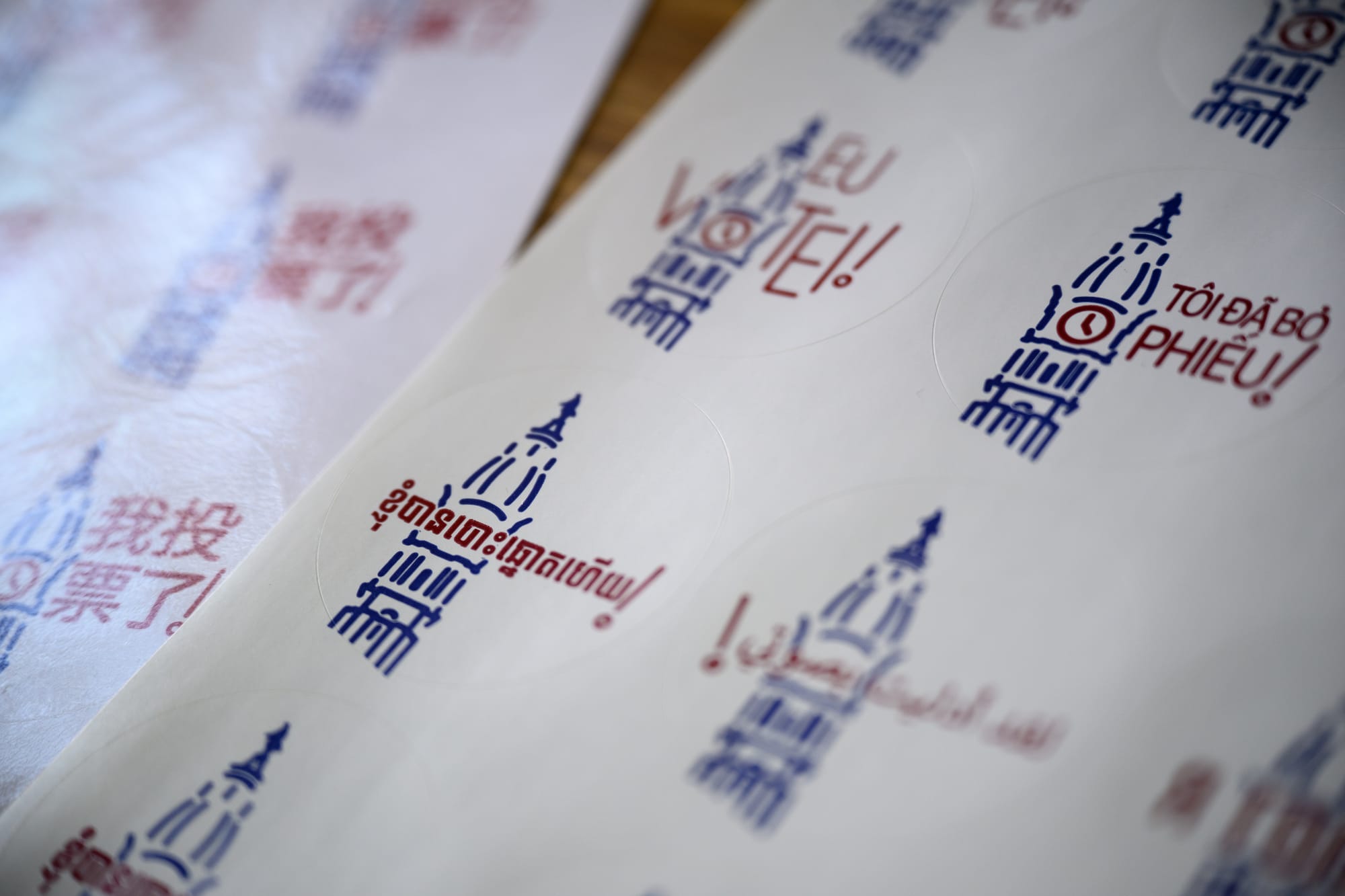
On Election Day, some voters and poll workers expressed approval for the job Krasner has done so far.
“I felt the DA did a good job on the Raymond drug bust,” said Jimmy Cartegena, who was working the polls in North Philadelphia. Cartagena believes that the responsibility of safer streets doesn’t only fall into the hands of the DA.
“Prison is a revolving door but if they make sure that people have been rehabilitated and gotten the necessary help,” said Cartegena, “Then people need to make sure they’ve got a job. The state reps, the people under them, state senators need to create jobs.”
But when canvassing, Cartagena reminds his community that changes to their everyday life can be slow.
“I try to tell people that change isn’t going to happen overnight, ” said Cartagena.
But others still think the crime is out of control. Tera Riddick, another poll worker, puts blame on parents. For Debbie Toro, it’s also a question of faith.
“I think people have given up on the system,” said poll worker Debbie Toro, who observed that voters on Tuesday were concerned about SNAP benefits, medical coverage, and housing.
“A lot of people want to build generational wealth but how can we build wealth when we don’t have health, life, and food,” Toro continued, “How can we think about wealth when we don’t have the basics?”
With over 300,000 of the ballots counted, the Philadelphia Commissioner's office currently reports that about 33% of eligible voters showed up to the ballots in this election. The last time that Krasner was up for re-election in 2021, only 22 percent of eligible voters turned out. Seth Bluestein, one of Philadelphia’s three commissioners, believes Philadelphians showed up because both parties were able to rally voters.
“What makes Philadelphia special is the amount of polling places,” said Bluestein, “Philadelphians can walk to their polling places and see their neighbors and make election day a holiday where they celebrate our democracy.”
